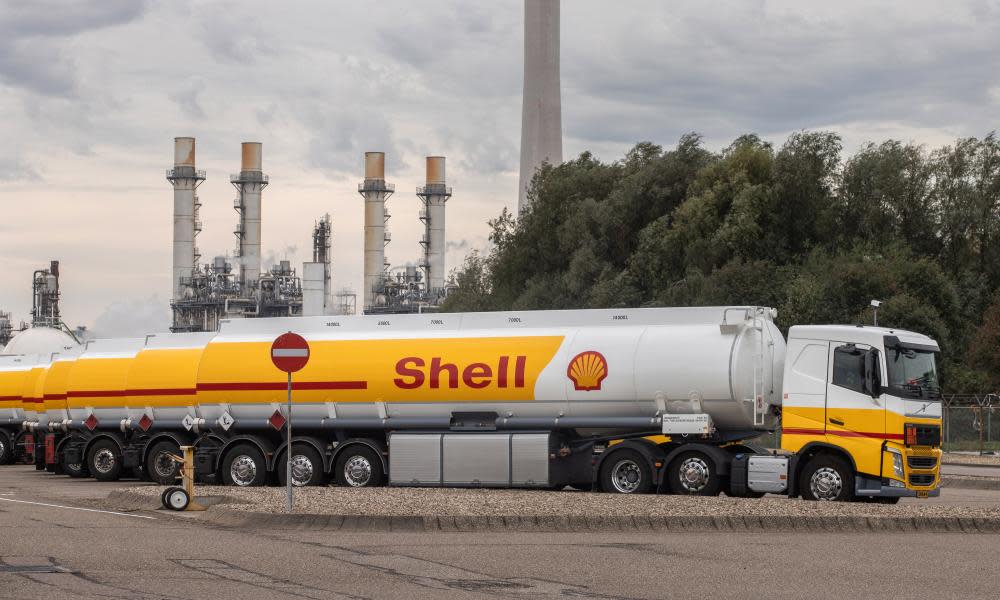Shell drops target to cut oil production as CEO guns for higher profits

Shell has abandoned plans to cut oil production each year for the rest of the decade, in a shift in approach to firmly target fossil fuels and increase payouts to shareholders under its new chief executive, Wael Sawan.
The FTSE 100 oil company on Wednesday announced that oil production would remain stable until 2030, after previously saying it would cut output by “around 1-2% each year”.
Sawan was appointed as Shell’s chief executive last September, replacing Ben van Beurden who had surprised some activists and investors by putting in place a target of achieving net zero carbon emissions by 2050, albeit with only gradual reductions in fossil fuel output planned. Since taking over, Sawan has emphasised gaining financial returns for investors.
In its strategy in 2021, Shell said it would aim for “an expected gradual reduction in oil production of around 1-2% each year, including divestments and natural decline”.
However, Shell argued on Wednesday that the earlier strategy did not constitute a commitment to cutting oil production steadily.
It said that it had in fact hit the target within seven months of announcing it because of the $9.5bn sale later in 2021 of its interest in an oil project in the Permian Basin, Texas. Shell’s output was 1.9m barrels of oil a day in 2019, and dropped to 1.5m barrels a day – a 21% decline.
A Shell spokesperson: “Our target of a reduction in oil production by 2030 has not changed. We’ve just met it eight years early.”
The renewed commitment to fossil fuel production came as Sawan unveiled a strategy update in New York in which Shell focused on cutting costs and targeting its most profitable areas.
Shell said it would grow its business producing fossil fuel gas while also keeping oil production steady, “stabilising liquids production to 2030”.
It also aimed to please investors with a 15% planned dividend increase and a promise to return $5bn to investors through a share buyback.
Sawan did reaffirm the company’s previous commitment to producing net zero emissions by 2050, although the company warned that this was unlikely to be achieved “if society is not net zero in 2050”. As part of those plans, Shell said it would invest between $10bn and $15bn across 2023 to 2025 on “low-carbon” products including biofuels, hydrogen, electric vehicle charging and carbon capture and storage.
Shell argues that it needs to make profits to support investment in the transition away from fossil fuels.
“We are investing to provide the secure energy customers need today and for a long time to come, while transforming Shell to win in a low-carbon future,” Sawan said in a statement. “We need to continue to create profitable business models that can be scaled at pace to truly impact the decarbonisation of the global energy system. We will invest in the models that work – those with the highest returns that play to our strengths.”

 Yahoo News
Yahoo News 
